Feature 18 min read
Go greener, cheaper
Pure Planet was founded by friends who wanted to offer green energy for less than brown, polluting power. We speak to one of the co-founders Steven Day to find out more about why being sustainable is so much easier, some of the biggest challenges in the industry, what the energy providers of the future will look like, and how EVs will play a role in it all.
When was Pure Planet founded?
We got funded in September 2016, built our tech platform and proposition over the winter and went into what is called controlled market entry in spring 2017, which is a regulated entry point for start-ups in the retail energy market. You have to prove yourself by showing your systems and protocols, to show you’re capable of entering the market. We spent those early months building up our team, and bringing on small numbers of customers – our first were mainly friends and family members. You are only allowed to have a few hundred customers during the controlled market entry – in case something goes wrong – but we passed it with flying colours and launched fully in September 2017.
Who else founded the business with you?
There are three of us who are the real driving force behind the whole thing – Andrew Ralston our CEO, Chris Alliott who looks after the finances and me on marketing. Andrew and I have worked together for 20-odd years and were part of the founding group of Virgin Mobile. Chris followed Virgin Mobile as an analyst from the City, and he and I became good friends during those Virgin years, and when Andrew and I started to talk about putting an energy business together, we called Chris as we knew he had an interest in the industry.
What was the concept of Pure Planet from the very beginning?
It was essentially “green for less than brown”. The idea of renewable energy was a very expensive concept back when we started to look at this in 2015/2016, and our thinking was: wouldn’t it be great if the public had the opportunity to buy renewable energy for their homes for a price that cost less than polluting energy? At the time, if you bought green energy you paid 20 per cent more than a standard tariff, and we thought it would be great to flip that. Why would you choose to pay more to pollute, when you can pay less and be cleaner?
How were you able to negate those costs?
There were many ways we did this, such as having access to the whole market through competitive pricing and having a low operating cost model, so these factors help bring the retail price down.
What motivated you to switch from telecoms to renewable energy?
When Andrew and I were at Virgin Mobile, we flirted with the idea of renewable energy. This was during the .com boom when people were setting up businesses left, right and centre - and just before the bubble burst. Virgin actually launched into the energy market with a separate business but it didn’t last. In telecoms, it became more fashionable to run broadband alongside mobile businesses, and also TV, so we let the idea of doing anything in energy lie. We ended up joining Orange in the noughties and we looked at it again then, but decided against it as there was so much else going on with the business. Eventually, when we started Pure Planet, we wanted to bring our experiences of mobile and digital technologies to the proposition. We were determined to make Pure Planet a digital business – using modern technology which is much easier to deal with, such as paperless billing for example, which didn’t really exist back then. We saw the retail energy market as being similar to telecoms, but less advanced.
Where does the energy you supply at Pure Planet come from?
We buy it through the BP in London, they are one of the largest traders of renewable energy in the world, and they buy from a variety of sources across Great Britain. We buy only wind and sun, and last year we used 52 per cent wind energy and 48 per cent solar energy.
Going back to BP, they hold a minority shareholding of 24 per cent. How did you get them to invest in Pure Planet?
I wonder that myself sometimes! We didn’t want to do what many had done before, which was to bootstrap yet another energy supplier – just not put much money in or buy an off-the-shelf system that is very rudimentary to then go bust. We’d seen those horror shows before and we really didn’t want to do that. We’d spent a few months talking to potential investors, big financial institutions with interests in renewable energy, and while we were doing this someone said to us, have you tried talking to the big energy companies? And at that point we contacted several of them and got offered two deals, so we were spoilt for choice, but BP offered Pure Planet a real opportunity of capability, reach and experience which was important to us. The deal we struck was great - it gave us the financial capability to launch properly and have the energy trading expertise to call on if needed.
What is your focus at Pure Planet?
We’re very focused on domestic customers, providing them with renewable electricity all packaged up in one tariff. As well as offering 100 per cent renewable electricity, we’re also 100 per cent carbon neutral with our gas – we offset all of it. Our customers also pay what we pay – there’s zero mark-up on the cost of the energy. We have a small monthly membership fee which is the standing charge. And by being digital, it’s easy to see what’s going on with your account at any time. We’re open. We don’t have long-term contracts and there’s no exit fee. People are free to leave whenever they like if they don’t like what we offer, but we hope they won’t, of course, so we genuinely work hard to make our product, service and prices worthy of our members’ loyalty. It takes minutes to switch as it’s all online, and then customers just download our app for the easiest way to manage their account.

What makes you unique compared to other 100 per cent renewable energy providers?
If you look at it from a proposition point of view, ours is very simple. Also, being entirely digital, we don’t have a conventional call centre - there’s no phone number. But we do offer service 24/7. We use the latest in AI with a chatbot which is available around the clock. It deals with most queries first time. But if it doesn’t – which of course happens some of the time – we also have some brilliant, enthusiastic and dedicated members who help others out in our community.
And, of course, if you need to speak to someone at Pure Planet, you request that through your online/app account or the bot and we call you when it best suits you. It save endless queuing on the phone and blending modern tech with the community and our team, helps keep costs down – even though service is always on.
We found that there are a relatively few key questions that come into call centres of other energy suppliers which could easily be answered with automation, for example ‘When is my bill due?’ and ‘How do I give you my meter reading?’. By doing this, we’ve dramatically cut down the inbound call traffic other suppliers may face.
Technology is one thing, but we’re really proud of our community of more than 20,000 people who visit fairly frequently, whether just looking or posting, and they are very active and responsive. They help each other out and provide peer-to-peer support, and also debate about wider issues such as the environment. We also talk to our community to see if they like our ideas before potentially implementing them.
We now have around 70 members of staff and we’ve tried to be different as an employer, too. For example, the pension we offer is ethical, we have equal parental rights, unlimited holiday and a green-only car policy.

Do you have a target consumer?
It can be anyone with an energy account in the UK; however some people prefer the digital aspect we provide, while others don’t. We also find our customers are interested sustainability, and there are an increasing number of EV drivers among our members.
What was the last big achievement that you celebrated?
Last week we won an award for our app at Creative Bath, which is a local regional award ceremony. On National Clean Air Day, we wrote to every business in the Bath area and challenged them to go carbon free for their commute to and from work that day. Everyone at Pure Planet walked, cycled or ran to work that day – three even canoed a round trip of 20 miles on the Kennet & Avon Canal - and we all had breakfast together to celebrate!
It sounds like you’ve had a very successful journey to date, but I imagine there’s been some hurdles along the way.
There have been some simple ones when we were getting started, just getting ideas from a PowerPoint to reality I always find personally challenging. Ideas are one thing; but making things real involves huge amounts of time, energy and determination. Just letting the business naturally grow and unfurl was difficult as it’s almost out of your control! More tangibly, the market has been very difficult; some people call it irrational at the moment. More than ten suppliers have gone bust in the past year or so. Many of them were heavily discounting prices to try to gain custom then ended up going bust as they couldn’t afford their underlying costs. This has had a knock-on effect on consumers’ trust in smaller businesses as a consequence, even though they may be cheaper than a bigger company. Elsewhere, we have a price cap come in that has caused more irrational behaviour from the Big Six energy suppliers, which are like a giant shoal of sharks now because of it!
Of the Big Six, two of them have suggested they want to leave the retail business claiming it’s too tough and are blaming competition from the small and medium sized companies. The wholesale market has been very unpredictable for the time we’ve been operating and it has been higher price-wise than it’s ever been in years. Then we had the ‘Beast from the East’ and energy prices on the day shot up to around 20 times the usual cost. At the start of that cold snap, the country had its gas reserves completely full, even the pipes carrying gas in were on full flow, but as a nation we were within a day or so of a shortage. Industries were warned that may have to cut their gas off to keep domestic properties supplied. Bad weather in winter can make a big difference. And more recently, trouble in the Gulf is interrupting the oil shipments, which might go on to have a wider impact on oil prices. People are more used to seeing this kind of thing pushing up prices at the petrol pumps but can forget this also impacts their energy bills, too.

How do the oil prices impact you as a renewables company?
Energy is traded through a wholesale market, and it’s that market that sets the price that we as a supplier pay. It doesn’t matter how the energy is generated, the price is the price. Even though renewables are contributing an ever-bigger proportion of energy to the market in Britain, it’s still heavily driven by fossil fuel which influences the price of energy. In time, that problem will go away as renewables are not only better for the environment and our health, but as we will be able to create more of our own energy at home we’ll be creating a more secure energy supply for the country as a whole.
What do you think the power providers of the future will look like?
We’ve got a lot happening around climate change. We have the Paris agreement. As a country we have the Climate Change Act 2008 – the first law like it anywhere. And parliament has declared a climate emergency, and that we are now aiming for net zero greenhouse gas emissions by 2050. What this means in reality is that we will have to electrify pretty much everything entirely. We have started with the power generated on the grid – 33 per cent of all electricity on the grid is now from renewables. Transport is next. EVs will play a huge part here – as will electrifying trains, trucks, tractors, basically as much as we can that moves. Although there’s a lot of excitement around electric vehicles for personal transport – bikes as well as cars – we are behind countries such as Norway which has really pushed EVs. Heating is the third big carbon challenge. This is likely to mean getting off gas for heat and hot water. We will either replace our home gas boilers for hydrogen, which will require a new boiler, or simply switch to electrifying heat in our homes. Neither route will be easy, or cheap as things stand. But to hit our climate targets these are the big energy challenges we need to overcome as a country.
Besides providing electricity or hydrogen, energy suppliers of the future will be about the relationships customers have with their suppliers, which will be fundamentally different. I think that it will become more like a partnership. Why? Because at the moment the supply company essentially sends you the power, whether that’s gas or electricity, and then they send you a bill and it’s pretty basic – all one way when you think about it. But in the future, far more of us will be generating power at home, or in local communities, and sharing it though batteries, which may end up being like kitchen appliances – tucked into the kitchen like a dishwasher or washing machine. Because of the technology that comes with renewables, smart meters, two-way grids, home batteries and cars than discharge back to the grid, the whole dynamic changes. You begin to ask questions like: How much will I get if I sell my energy back to the grid? Can I share it with my neighbour? It will become the norm. You’ll still need to be connected to the grid but you could be supplying the grid instead of taking from it; it’s more of a two-way relationship and less passive than it is today.
Do you see this as an opportunity?
Absolutely! There are so many things that can be done. One of the things several companies are working on around the world are ‘clamps’ that can go near to your meter and take more accurate readings, a bit like smart meters. Some of them can detect different wave lengths when power is being used. This can be attributed to different machines in the home that are drawing power, so it can learn what appliance is using electricity and you can switch it off remotely. Another exciting thing is that we will be able to detect, for example, is that your washing machine is, say, eight years-old and running 50 per cent less efficiently than it was when new. We could partner up with certain white goods shops, for instance, and suggest that we can get you a new machine tomorrow morning, take away and recycle your old one, and that this replacement one will pay for itself in two and a half years though the energy efficiency savings.
How do you see EVs playing a part in your industry?
EVs have had a massive impact already. Unlike virtually any other item we might buy (or lease) it is the only one that has got people really thinking about how they charge it up. People are now so conscious of whether they are buying renewably because of cars. We don’t see that with food mixers, TVs, washing machines – or even homes. Most people until recently simply didn’t consider whether they were buying renewably sourced electricity to run things. Now they do. And EVs are responsible for that. I think it’s because car manufacturers have talked about ‘zero emissions at the tailpipe’ – not as though EVs have tailpipes – but it’s made me people think – are there zero emissions at my generator too…
EVs are cleaner which is brilliant, and help enormously with air pollution – tyre and brake dust emissions though are still a problem. Most people I’ve met who own or are looking to buy an electric car are on renewable energy tariffs already, so it will really be a boom for renewable providers when more people buy electric cars. There will be a lot more engagement with energy which we’ve seen with companies experimenting with how this technology works, and making the car work for you and earn you money, rather than it being the other way around.

What are the biggest challenges on the horizon for the retail energy market?
I think there’s a few things coming around, firstly is the government inconsistency around renewables and renewable policies. For example, even though the government has said we are going net-zero by 2050 it still wants 20 per cent VAT on solar panels – yet coal has VAT at 5 per cent. Talk about mixed messages. Secondly is regulation, the price cap which OFGEM introduced has created some confusion in the market. Although consumers are protected from overpaying on variable tariffs now, this can lead to a false sense of security – people can often still save hundreds of pounds by switching. The price cap doesn’t necessarily equal good value and much cheaper can be had elsewhere. Thirdly, it’s adapting fast enough to supply the demand of renewables in general, which we’ve seen with electric cars and building the infrastructure up to cope with charging them.
Being green is something most of us aspire to become, how successful have you been with getting this message across with your company?
The idea of being green was once upon a time a leftish, hippie, slightly rebellious thing, and then it became people who could afford to go green, so it became more middle class, but now it’s becoming mainstream. As you say, most of us now aspire to being green.
EVs are going through a similar cycle: not that long ago they were really only for the early-adopters, then they started to attract the middle class with money to buy premium vehicles, and now – with all the electric cars coming out – EVs have hit the mainstream. EVs are on the verge of becoming, well, normal.
The whole environmental debate has shifted and the publics’ imagination has been fired up with shows such as Blue Planet II. Attenborough really made people think differently about their environment and the climate. And that’s helped the take up of EVs too. People don’t want to pollute if they can avoid it.
There was a poll conducted recently which showed that about 80 per cent of people were pro renewable energy, with the rest being undecided or in the middle and a tiny percent disagreeing with it. That’s a massive number. Another poll now shows 85 per cent are concerned about global warming. These kind of stats would have been unheard of just a year or two ago.
Personally, I did a talk at TEDx about how innovation takes time to catch on but if they are good they eventually get widely adopted. Can you believe it took almost 80 years for the electric light bulb to catch on as a good idea; or the umbrella 50 years to become socially acceptable to use? Choosing renewables was similar. Now, like EVs, it is essentially the new norm.
As a company we recently had a stand at Robert Llewelyn’s Fully Charged LIVE event at Silverstone over the three-day weekend and talked to lots of our members and prospective customers. I was also on the panel, talking about how innovative tariffs can help change energy consumption. And we’re really looking forward to going to Fully Charged LIVE again next year. It’s a brilliant place full of enthusiasts for EVs, clean tech and renewables. What could be better!?
Do you have any final words?
Just to say that it’s really easy to make the switch to renewable energy. It takes two minutes. If you haven’t done yet, please do. It’ll cut your household’s carbon footprint in half instantly – and will save you money too.


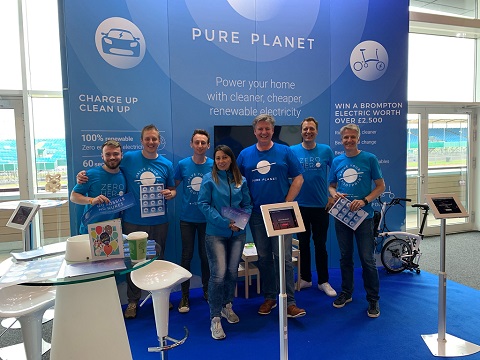
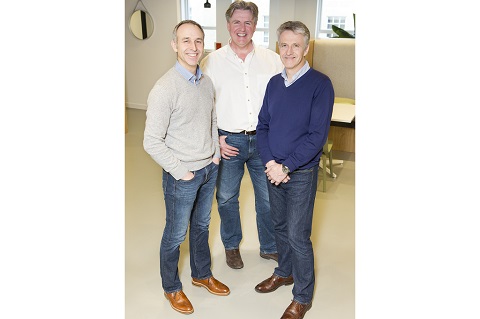
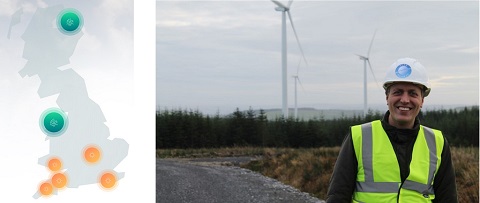

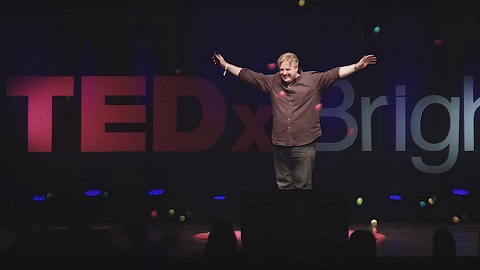
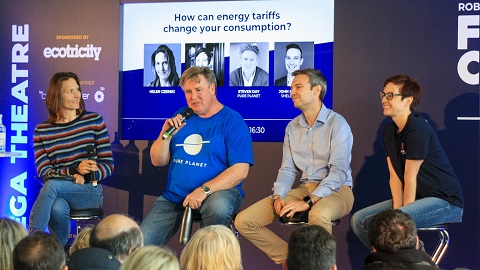

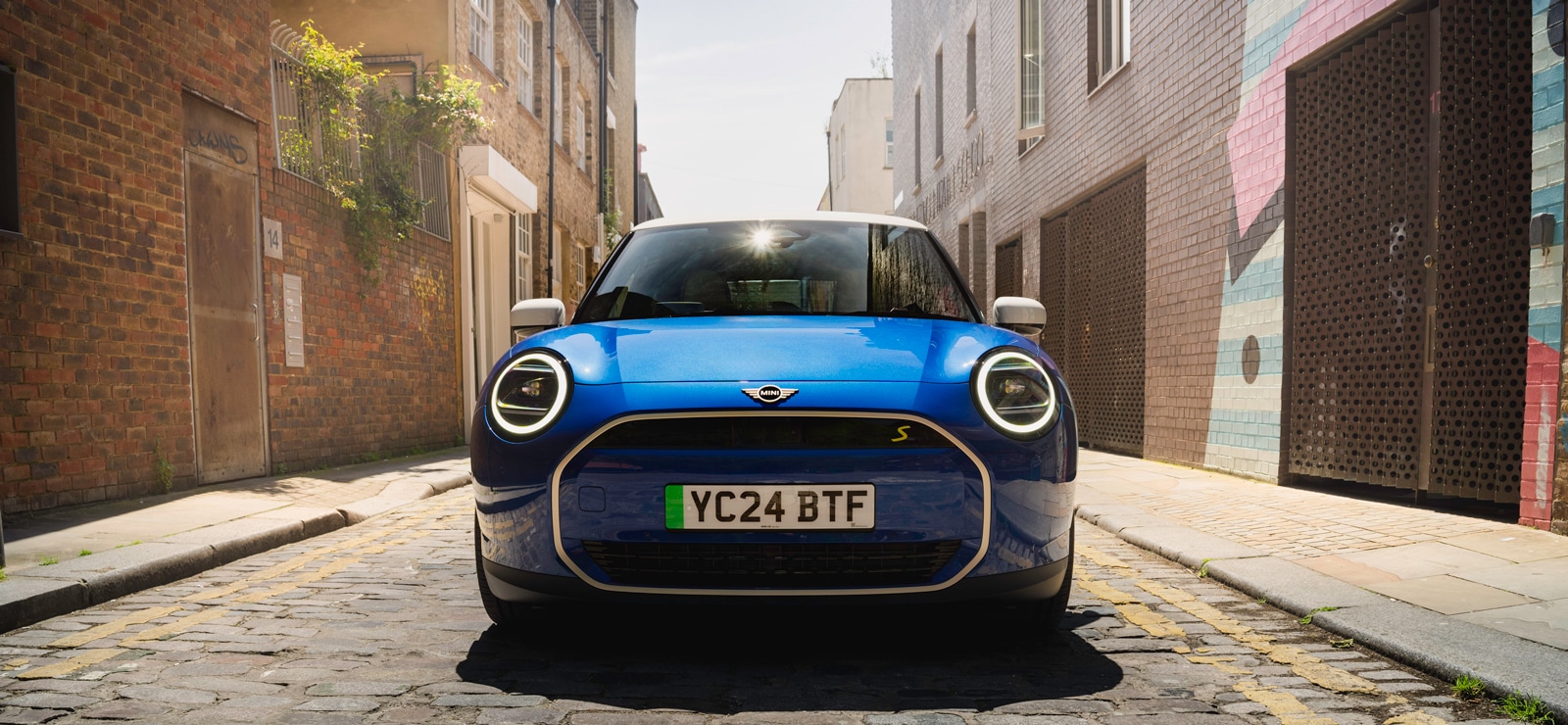
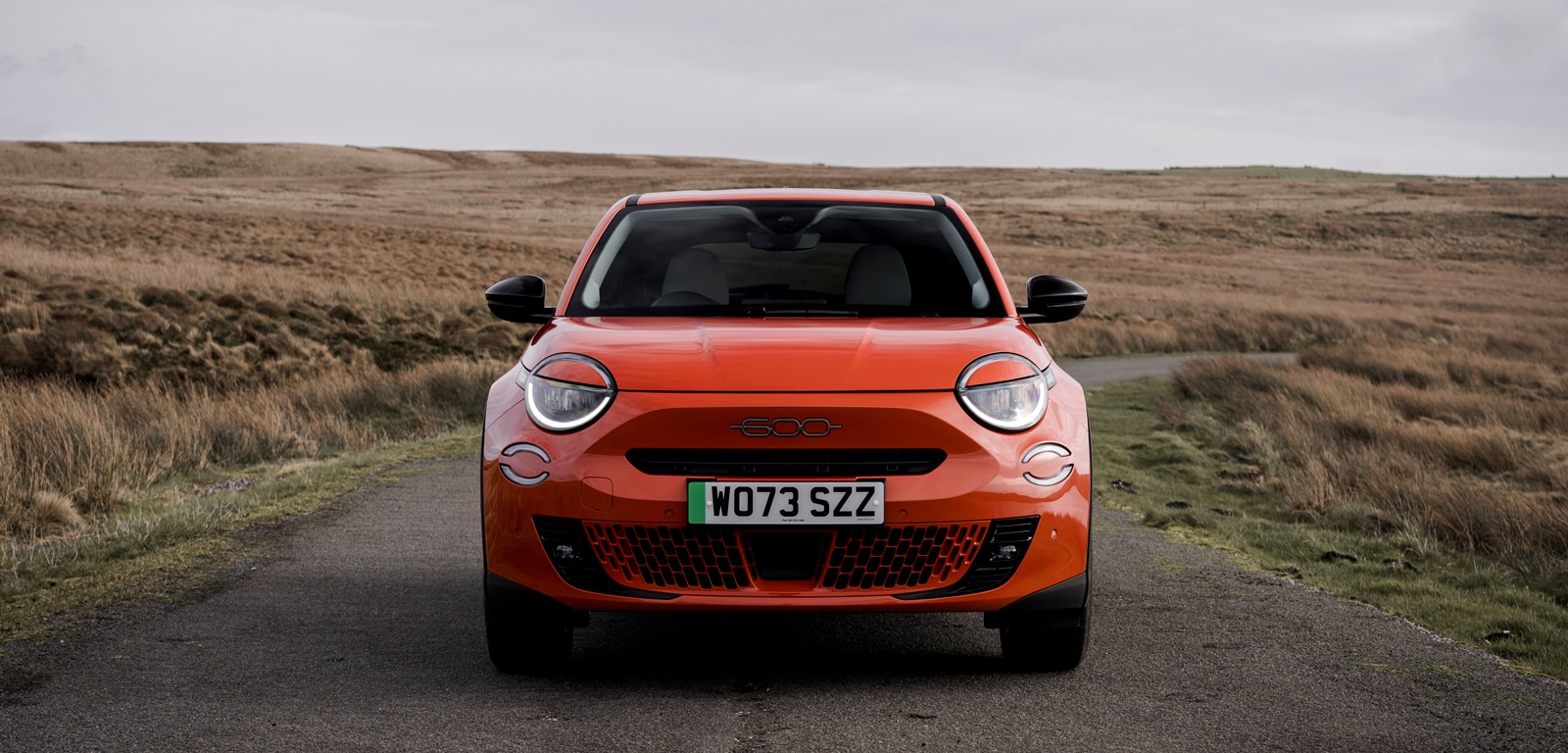
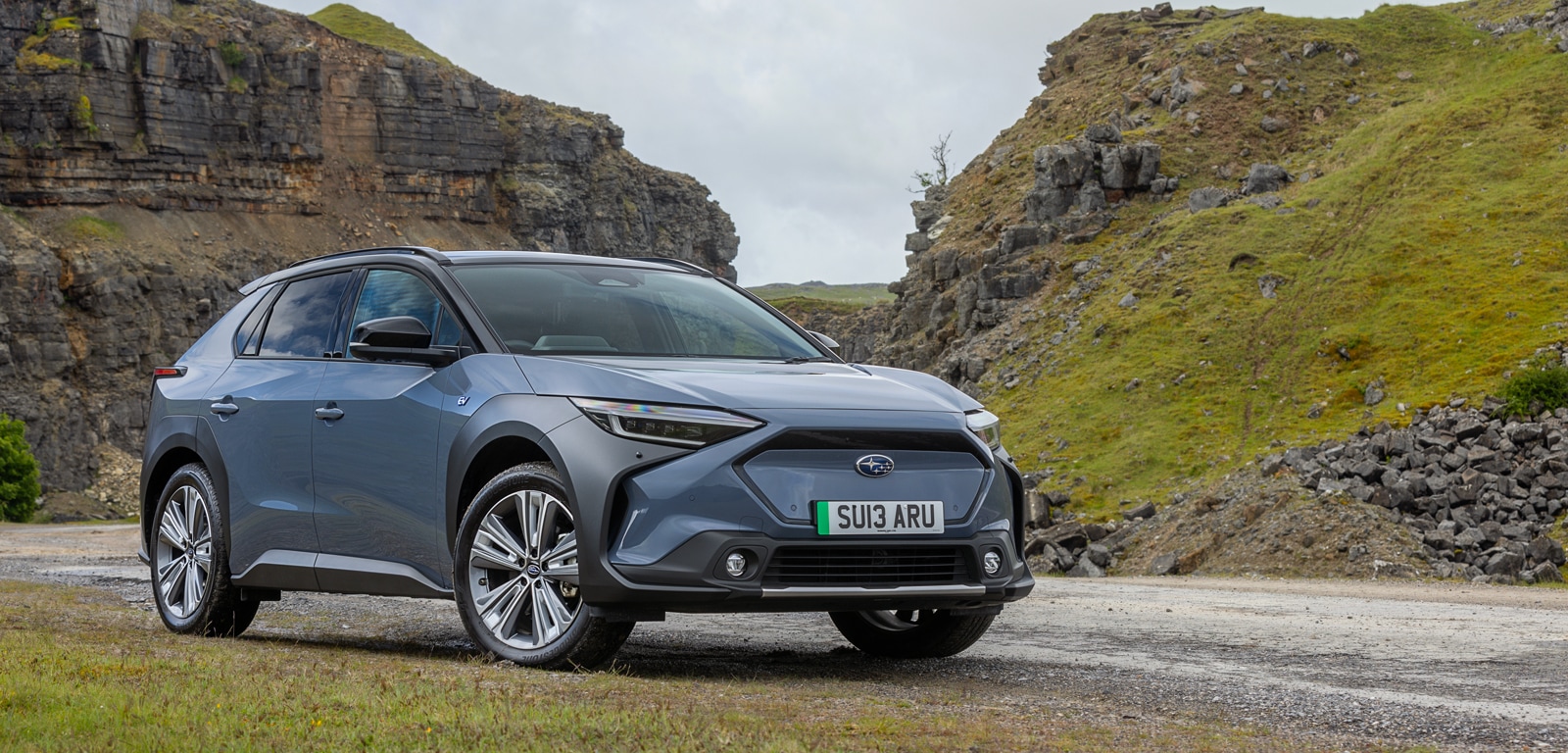
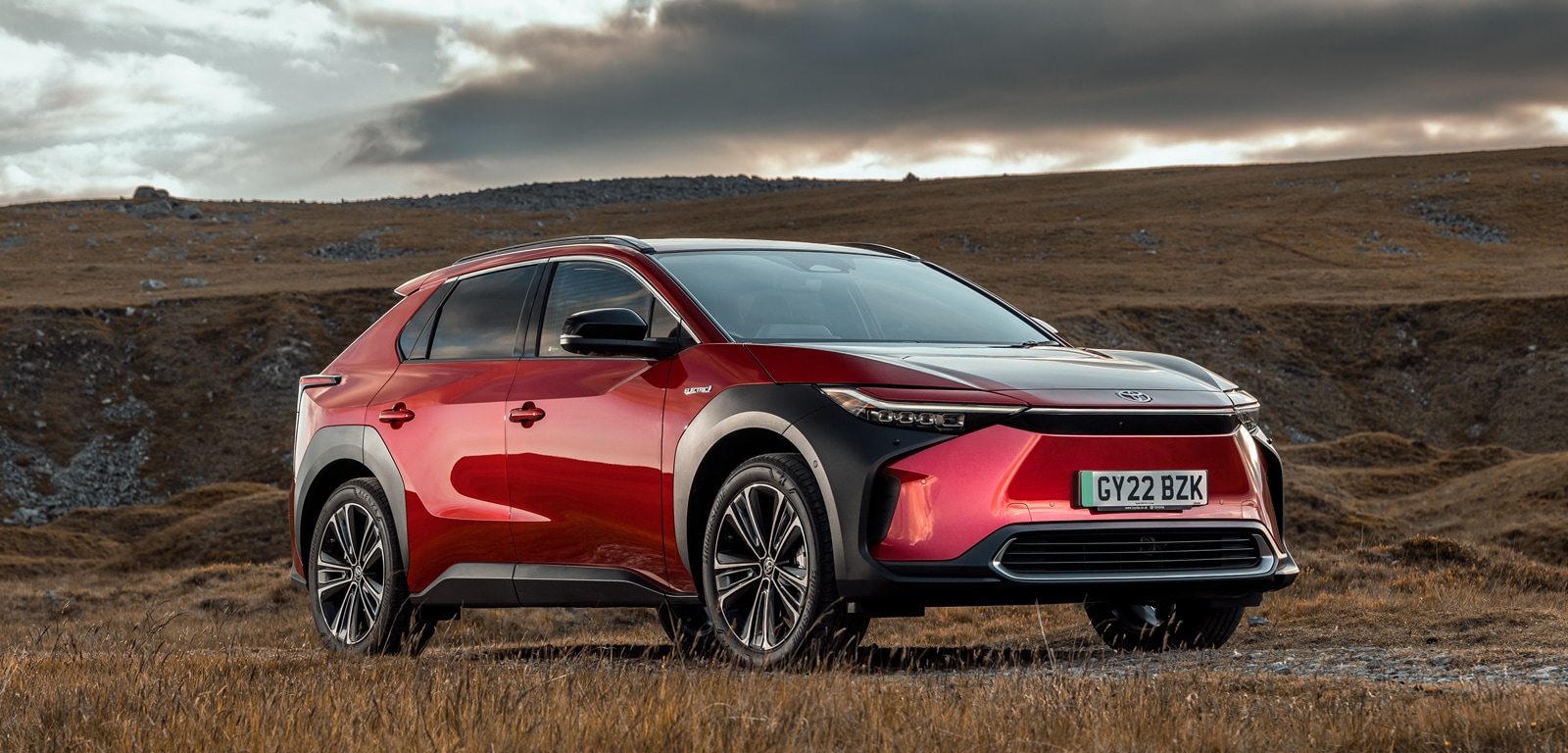
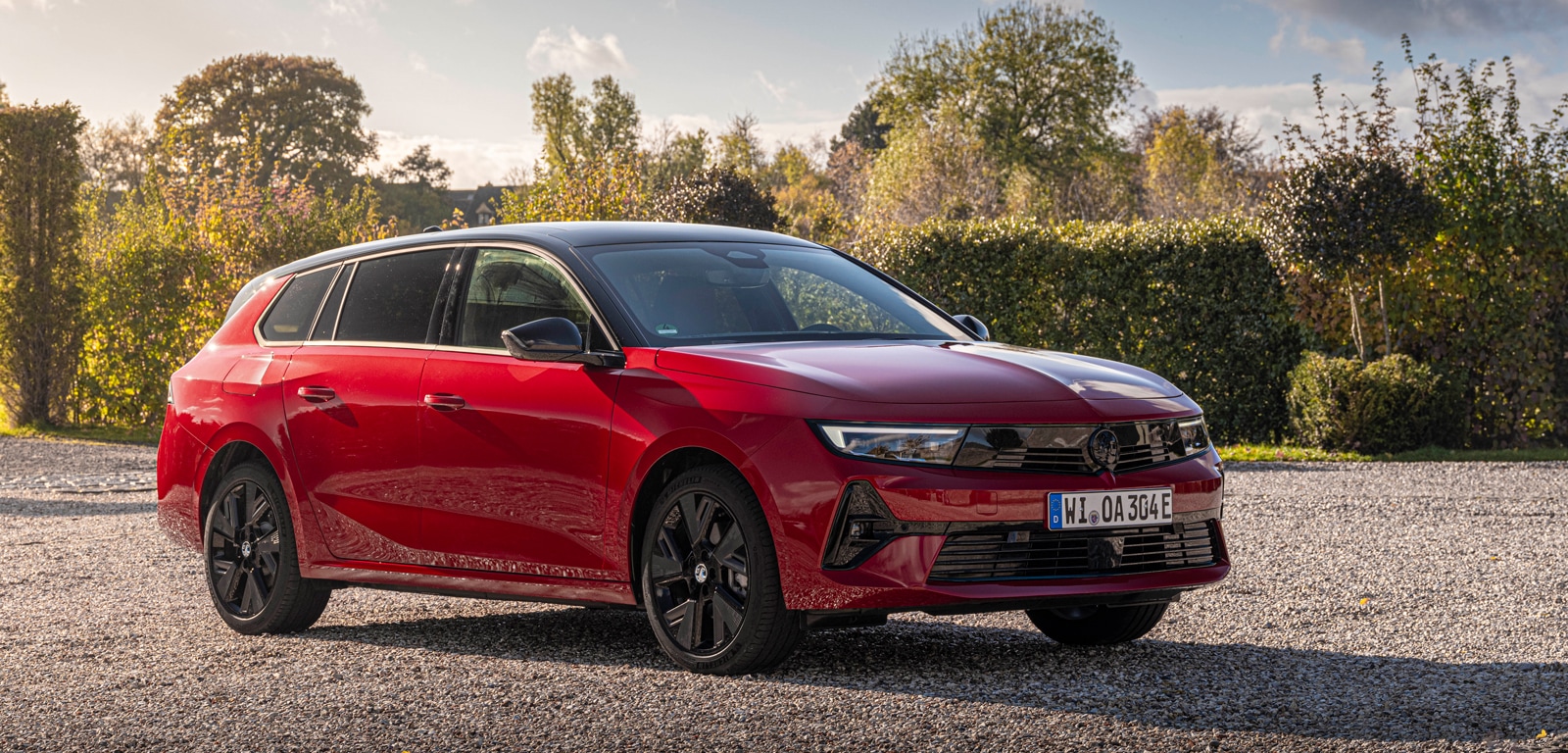
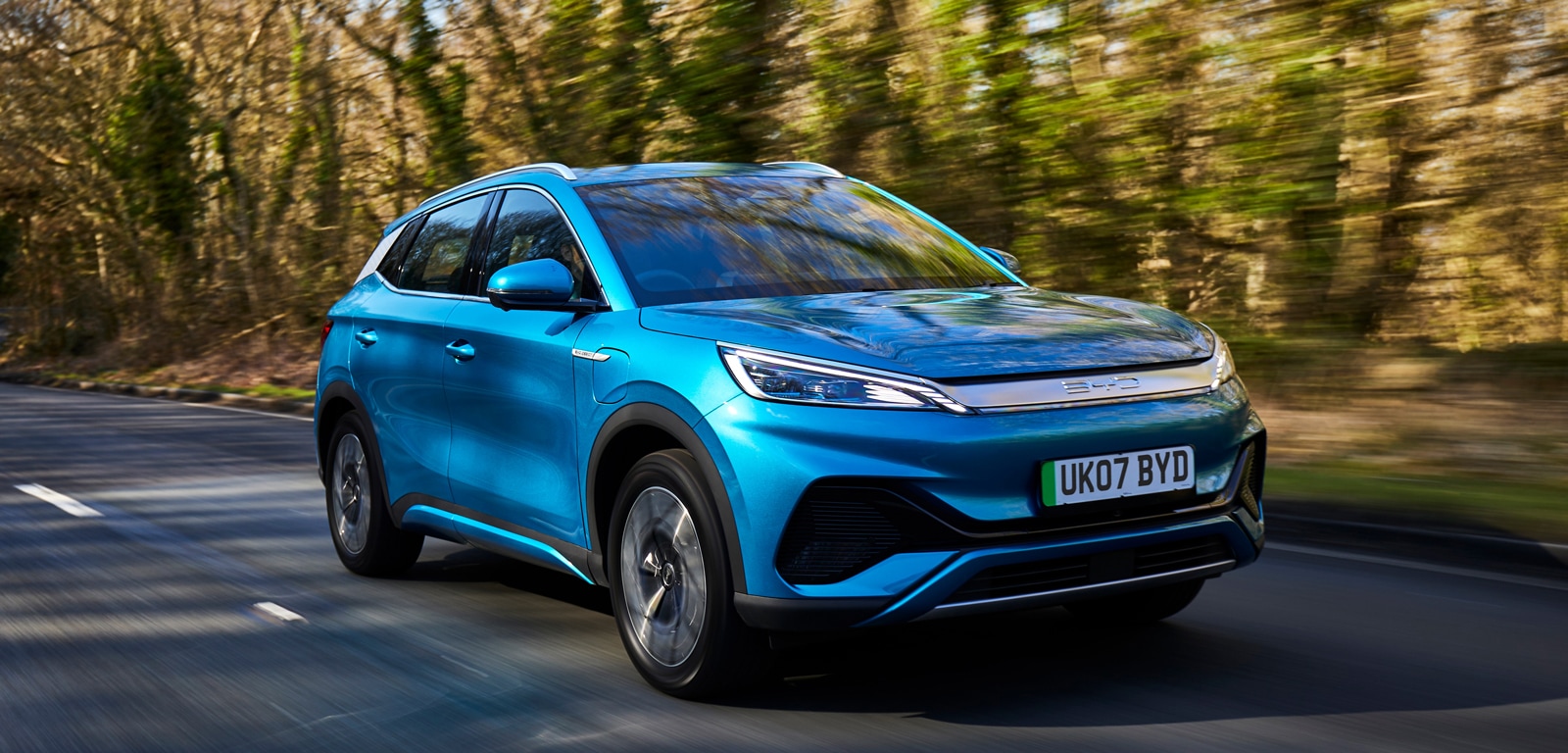

Comments (0)
Be the first to write a comment
Login/ Signup